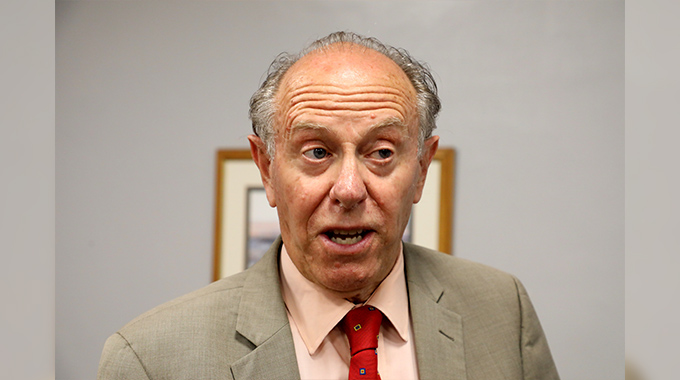The gendered politics of death, remarriage and asset ownership

Andile Tshuma
I recently spent a week with a rural community in the Midlands Province. Due to its geographic location, there is a cultural variety, I could describe it as a rainbow community. You find the Karangas, the Ndebeles, and the Shangani.
They practise their cultures, have adopted each other’s cultures — the social cohesion is beautiful. I would say this is the best province to be in. I visited Zvishavane and Mberengwa East, to be precise.
While the mix and co-existence of the cultures was beautiful, there was something brewing that was not condoned by either of the social groups in the communities I was at.
One widow had after two years of her husband’s death, notified elders of her intentions to remarry and have the new husband move in with her at the homestead she shared with her late husband.
It was more convenient for the new couple as the woman’s homestead was nice and worth more as compared to the man’s.
There was a well, water was in abundance and there was solar power, a five-roomed house and some nice huts.
The elders would however, have none of it and when I left, a meeting had been called as the family was arguing that there was no way another man, with no blood ties, from another village could move into their child’s homestead.
It got me thinking.
When a man loses his wife to death’s sting, he is pitied and is expected to marry just after a year, as a sign of moving on and showing that he is still a man. In the olden days, he was encouraged to marry one of his dead wife’s relatives, such as her younger sisters, or nieces, her brother’s daughter.
Nowadays he is free to marry whoever and there are less of such marriages where a woman; family can give off one of their daughters after her death to the widowed husband.
When he marries now, relative or not, the new wife moves in to the dead woman’s house, and can even use the dead woman’s bedroom and life just goes on. The man is praised for managing to move on and remarry.
When a woman loses her husband, she is expected to show some degree of loyalty to her dead husband and his relatives by choosing to stay and not remarry after her husband’s death.
In the olden days, the encouraged form of marriage to the young widowed wife was to marry one of the dead husband’s younger brothers.
They would move into their brother’s household.
When a woman decided that she wanted to remarry, and she was not marrying a member of her late husband’s family, then the new husband is not welcome in the matrimonial home.
He cannot sleep in another man’s old bedroom.
While I neither condone nor condemn this social practice, it shows that all this happens because of socialisation and age-old practices that have been in place in communities for generations. However, the set-up favours men.
Why is it okay for a man to bring another woman to his late wife’s home but a woman cannot do the same? It is worse in rural areas.
Even in urban areas, if both the man and woman had been gainfully employed and the man dies first, it is difficult for the woman to remarry and keep her house.
If she remarries, she in almost all cases has to move out of her home, leave her children behind, if there were no children probably the man’s family takes over the house. Why is it so?
Maybe this all happens because a household identity follows the name of the man in the home.
If it is the Ncube’s home and Ncube dies leaving his wife behind, the home remains the Ncube homestead.
Suppose Mrs Ncube decided to remarry and marries into a Sibanda family, if Sibanda moves into the Ncube household, does the identity of the household have to change too?
There is no continuity and the Ncube name has to be discarded in favour of the new man in the house.
If put this way, it can somehow be understood, but anyway why does a home have to take the identity of the man?
Some families can be harsh to the point of evicting a widow from her homestead if they get wind of her intentions to remarry.
The family domain is among others, a space in which women’s rights are violated. Women assume various roles and responsibilities as mothers, daughters, wives, and in these varied contexts hold multiple identities as single women, adolescent, pregnant and young mothers, women in polygamous or monogamous relationships, elderly women and widows.
Unequal power relations between men and women affect the extent to which women are empowered to make choices and exercise agency and this is exacerbated by the patriarchal structure of society, which also entails the perception that women are dependants of male figures in their households.
Data obtained from a number of Sadc countries including Zimbabwe shows that women make the biggest constituency of claimants in family related court cases, highlighting that women are vulnerable and are often deprived of what is rightfully theirs.
Marriage, family and property rights cut across a range of economic, social, cultural and political and civil domains that can considerably impact on women’s ability to access justice.
Some of these rights include equality of the rights in marriage, divorce, parental authority, women’s ability to acquire, change and retain their nationality, marriage or transfer it to their spouses or children.
While a lot of efforts have been made, and a lot of ground has been covered with Zimbabwean women being able to seek justice with support from the Government and civil society, Government and its partners should continue working to create an enabling environment for women’s access to justice and all rights.
International legal frameworks and policy guidance on marriage, family and property rights call on countries to set standards of equality of treatment between men and women in marriage, family and property relations. – @andile_tshuma











Comments